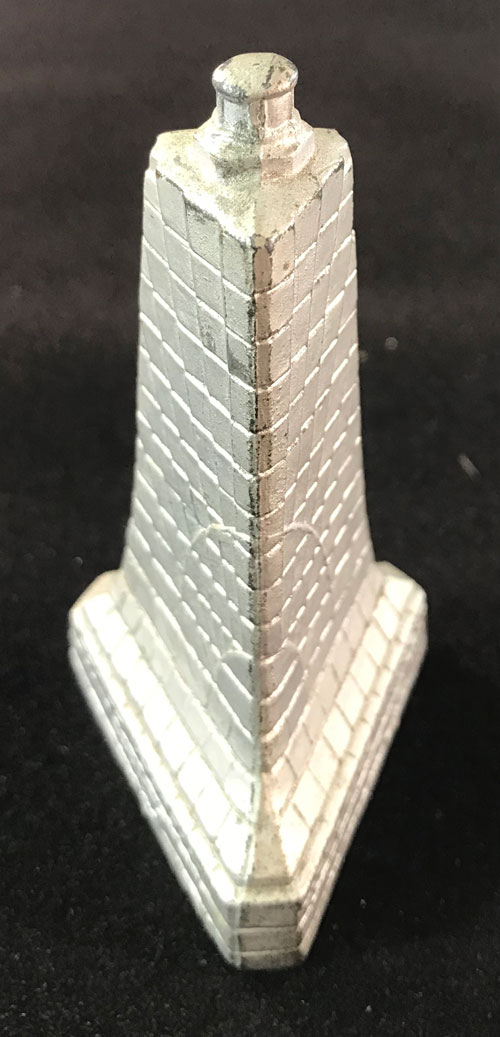 “A period of renewed interest in flight culminated with Charles A. Lindbergh’s nonstop flight from New York to Paris in 1927. The increased flight activity of the late 1920s encouraged recognition of the Wright Brothers.
“A period of renewed interest in flight culminated with Charles A. Lindbergh’s nonstop flight from New York to Paris in 1927. The increased flight activity of the late 1920s encouraged recognition of the Wright Brothers.
“At the local level North Carolinians, led by W. O. Saunders, editor of the Elizabeth City Independent, organized the Kill Devil Hills Memorial Association to ensure a proper commemoration of the Wrights’ first flight effort.”
— From “Commemorating the Wright Brothers at Kitty Hawk” by the National Park Service
This pot-metal souvenir stands 3 inches tall.
